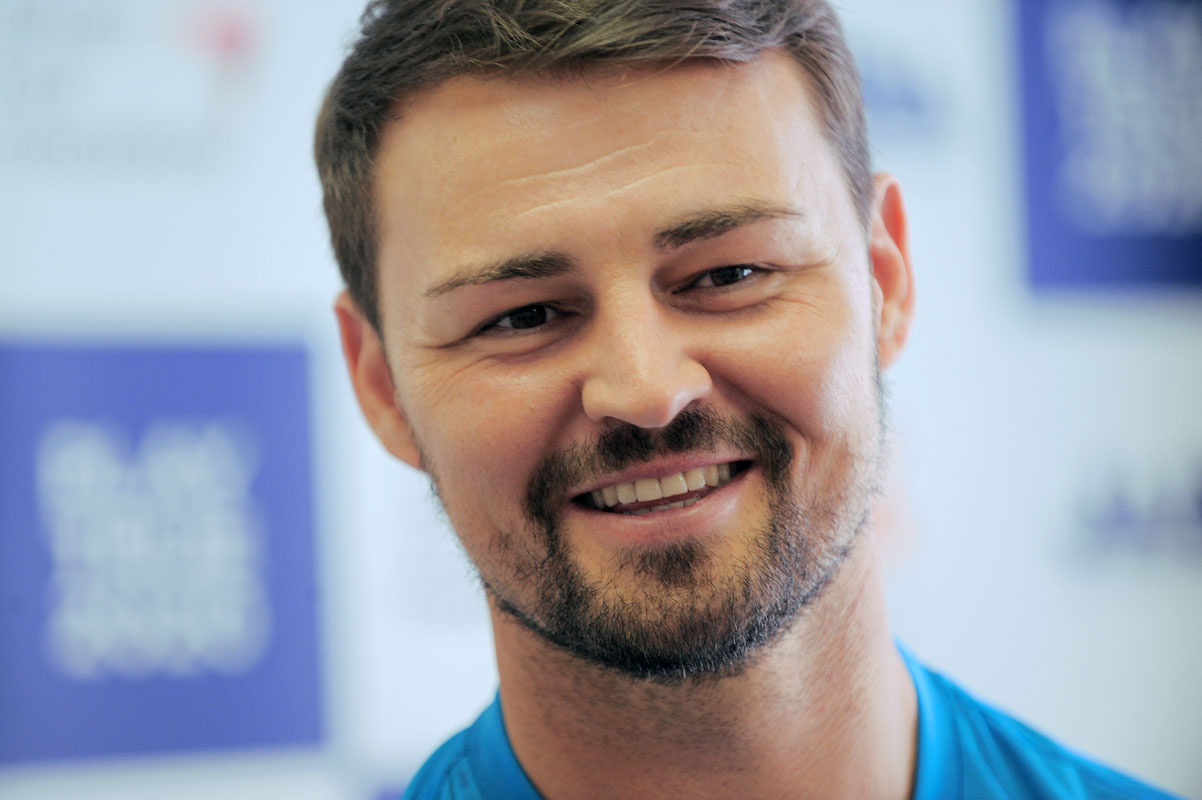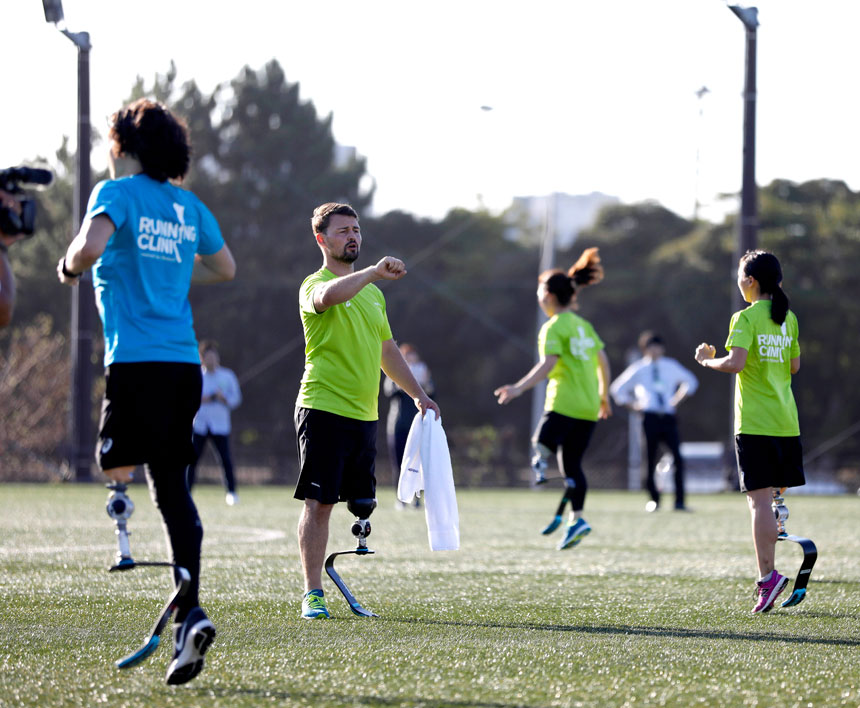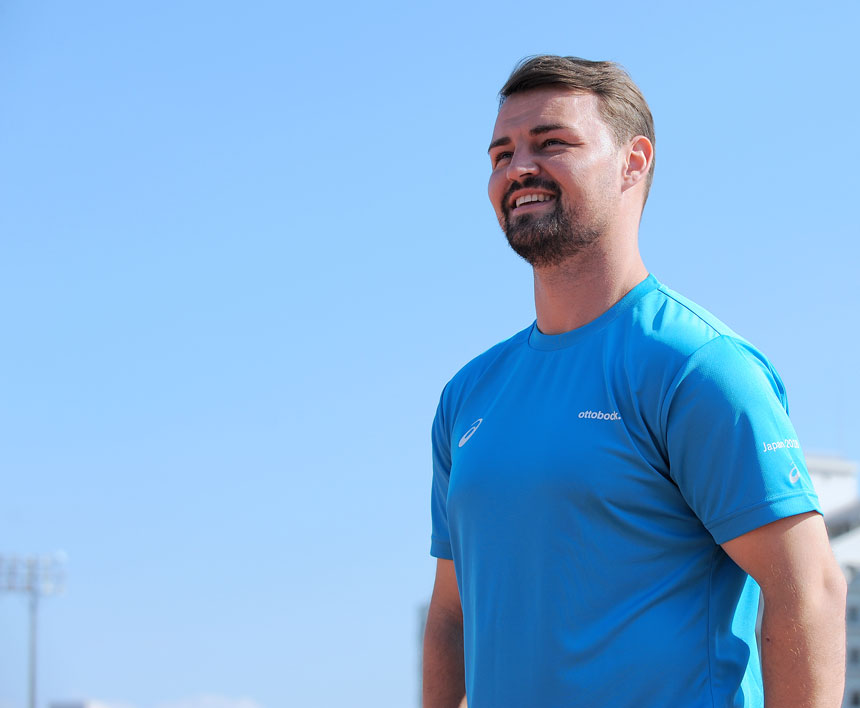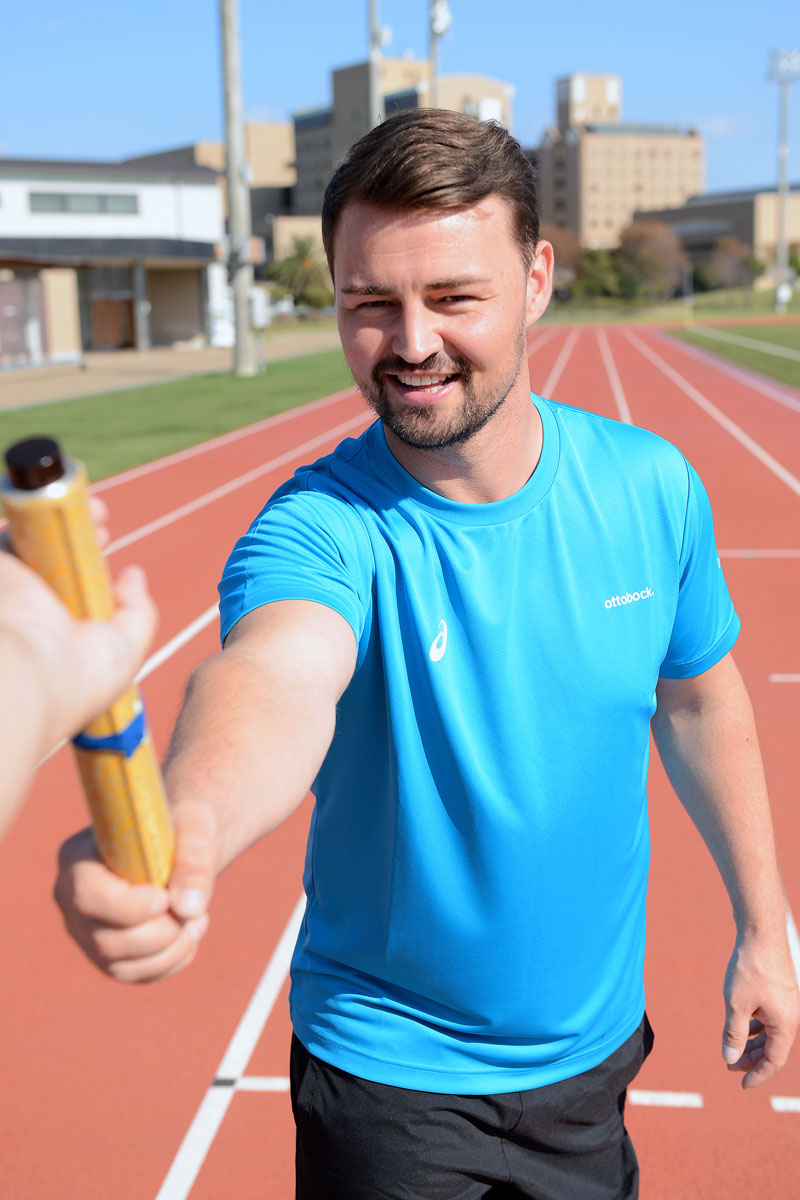

© Yuki Saito

If you are honest with yourself, then you can be successful. That is what sport proved to me. In sport, if you lie to yourself, you will see it in the results. If you lie to your coach and say you are training when you are not, in the next competition you will see in the results that you did not do it. Being honest is the most important thing that I learnt from sport. You also have to be honest in life to be successful. Be honest for your lifetime.
After my amputation, sport helped me accept myself in the hardest situation. Sport was really my best medicine. Sport can change people’s lives, and it can also change the world. Knowing how powerful sport is, we need to protect sport.
Sport does not see any differences. This was the most important thing that I learnt from sport besides being honest. Whether you are from Germany or from Japan, you can play sport together. It is not related to where you are from, and it is not related to whether you are black or white, if you are tall or short, or if you have or do not have an impairment. Sport is always related to one’s own emotions. I want to create a different understanding of sport. I want to create an understanding of what the foundation of sport is and what is really behind sport. This is what I am going to do in the future.
I do not like when sport is seen as business. The biggest problem in seeing sport as business is that in business you make money. In areas where money is involved, people start to play untrue. I heard a two-time Olympic gold medallist in cycling who had a bad crash is now paralysed and in a wheelchair said, “I feel right now that for the first time in my life, I feel like I am a free person”. I keep thinking this to myself. In other words, even though the Olympic Games is one of the biggest sport competitions, too much pressure is being created because being oriented towards business creates pressure.


© Yuki Saito
A situation I will never forget is the first physical education class at school after my amputation. When we were playing volleyball, the teacher asked two kids in my class to pick teams, and they were choosing members. I did not get picked by anyone. I had to find the team that was short of a player and I had to ask whether I could join.
I will never forget this – how painful that was. They did not pick me because I was not a good volleyball player or a good athlete. It was not because of my amputation. Kids are honest. They are always looking for the best athlete and the best sportsperson.
This made me realise that they would accept me if I was good at sport, and then I would not have to be in this situation again. It was the first time I started thinking about sport as my “medicine”, my key to being successful in life, and as my key to accepting myself. That was when I realised that I cannot blame other people for my situation. I have to work on my situation by myself.
Something else that I will not forget is when I got the Gold medal at the Paralympic Games in London 2012. My dad looked really serious, and he looked at my eyes and said to me, “Listen, you must not forget where you come from”. By that, he meant if I forget that other people helped me, I will lose him as my supporter and biggest fan. After that, he told me “Congratulations, I am proud of you”.
You cannot expect support if you are not supporting others. You cannot take if you do not also give. I always had support from my parents and my friends. This is so important in sport, too. If you become unbalanced in life or if you lie too much, you will not be happy. Life is all about balance.

© Ottobock Japan
Para athletes need partners who will help us in hard times. Spectators, who give us a feeling that they are proud of us, are also important. They give us the sense that they love what we do. If you do not get that love, and if you do not get the sense that spectators are proud in you, you will not have the reason to do sport.
The fastest area in the world changing their understanding of Para sport is the Asia-Pacific region. I think it has something to do with the culture. People are used to taking care of each other, so when they see Para sport, they see a connection.
Developing countries have bigger problems, and they have no time to think about people with impairments. There are many countries that do not even have proper welfare for people with impairments, let alone Para sport. But Para sport has the power to motivate people and to make people believe in themselves – even if they are from developing countries and even if there is a big gap.
I think Para athletes show more respect to the sport. They see sport differently. Para athletes may be more thankful for the opportunity to live life and to get a good quality of life back through sport, and this is something we should keep.


© Yuki Saito
People are always looking for the recipe for becoming successful, but there is no such recipe. You have to believe in and concentrate on your own uniqueness. When I became an athlete, no one believed in me except for my parents and my coach. I, too, believed in the uniqueness that I had. When I have fun, I can achieve big results, so my training was based on fun, not based on a schedule. I was different from other athletes, but now I am the most successful Para athlete in Germany.
There are lots of ways to reach a goal. The Paralympic and Olympic Games are different, but the training is the same. We can be successful together. Even Olympic athletes can learn from Paralympic athletes.
I want to create an understanding of what is at the foundation of sport, and what is really behind sport. We do not need an anti-doping campaign if the people start to understand and respect sport.
My dream for the future is to be able to do the same as what I am doing today, because I am happy today. I would like to be happy in the future too – based on my private life, my working life, sport, everything. If I can go in the same direction that I am on right now, perfect. I do not have big wishes for the future. My only wish is to stay the same person that I am right now. To just keep on doing good.


© Yuki Saito
When you play sport, you feel happy and thankful. You really feel your body. If you are healthy, you realise you can move better. Your mind is much clearer. Sometimes you win, sometimes you lose, but nothing is based on outside pressure. Everything is based on enjoying yourself. Happiness is the most important thing. Accepting yourself is the starting point.
When I lost my leg, the doctor was really honest with me. This is the reason why I am sitting here, and this is the reason why I am the person I am right now.
After my amputation, I met a Para athlete who told me honestly, “Listen, there are two directions that you can take. One is negative, and the other is positive. If you want to go in the positive direction, it will be tough, and it will be hard, but you will be able to do it. You have to make your own decision”. The reason why I am the person I am right now is because the people who helped me were always honest with me. I am currently involved in a running clinic where I coach lower-limb amputees about running with a sport prosthesis. Through this activity, I am giving back and passing forward to others the support that I received.
If you are nice, you will get nice people around you. If you are bad, you will get bad people. If you lie to others, you will get people who lie to you. This is the banner of life. You only get what you give. You can only take what you give. If you lie, the mirror of life will reflect what is true. That is always the way it is in life. In every situation in life, you have a mirror, and the mirror will always reflect what you do. This is my message.


Born in Kazakhstan and immigrated to Germany with his family at age 7. Above knee amputation of left leg at age 9 due to bone cancer. Began track and field at age 13 and competed in Paralympic Games for the first time in Athens 2004 Games.
Won a gold medal in the 100 metres sprint at London 2012. Marked a world record and won a gold medal in the long jump at Rio 2016. Holds world records in the 100 metres sprint and long jump as of November 2018.
Retired from competition in 2018. Now travels around the world coaching at running clinics for runners with lower-limb deficiencies, an activity that he began while active as an athlete.